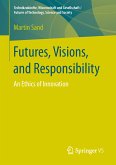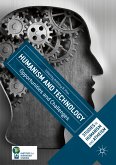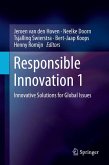Humans have always imagined better futures. From the desire to overcome death to the aspiration to dominion over the world, imaginations of the technological future reveal the commitments, values, and norms of those who construct them. Today, the human future is thrown into question by emerging technologies that promise radical control over human life and elicit corollary imaginations of human perfectibility. This interdisciplinary volume assembles scholars of science and technology studies, sociology, philosophy, theology, ethics, and history to examine imaginations of technological progress that promises to transcend the constraints of human body and being. Attending in particular to transhumanist and posthumanist visions, the volume breaks new ground by exploring their utopian and eschatological dimensions and situating them within a broader context of ideas, institutions, and practices of innovation. The volume invites specialists and general readers to explore the stakes of contemporary imaginations of technological innovation as a source of progress, a force of social and historical transformation, and as the defining essence of human life.
Contents Technological Imaginations.- Ethics and Politics of Envisioned Futures.- The Transhumanist Imagination in Context.
Target Groups
Scholars and students in science and technology studies, philosophy, utopian studies, science and religion
The Editors
Hava Tirosh-Samuelson is Irving and Miriam Lowe Professor of Modern Judaism and Director of the Center of Jewish Studies at Arizona State University in Tempe, Arizona.
J. Benjamin Hurlbut is Assistant Professor of Bioscience Ethics in the School of Life Sciences at Arizona State University.
Dieser Download kann aus rechtlichen Gründen nur mit Rechnungsadresse in A, B, BG, CY, CZ, D, DK, EW, E, FIN, F, GR, HR, H, IRL, I, LT, L, LR, M, NL, PL, P, R, S, SLO, SK ausgeliefert werden.









